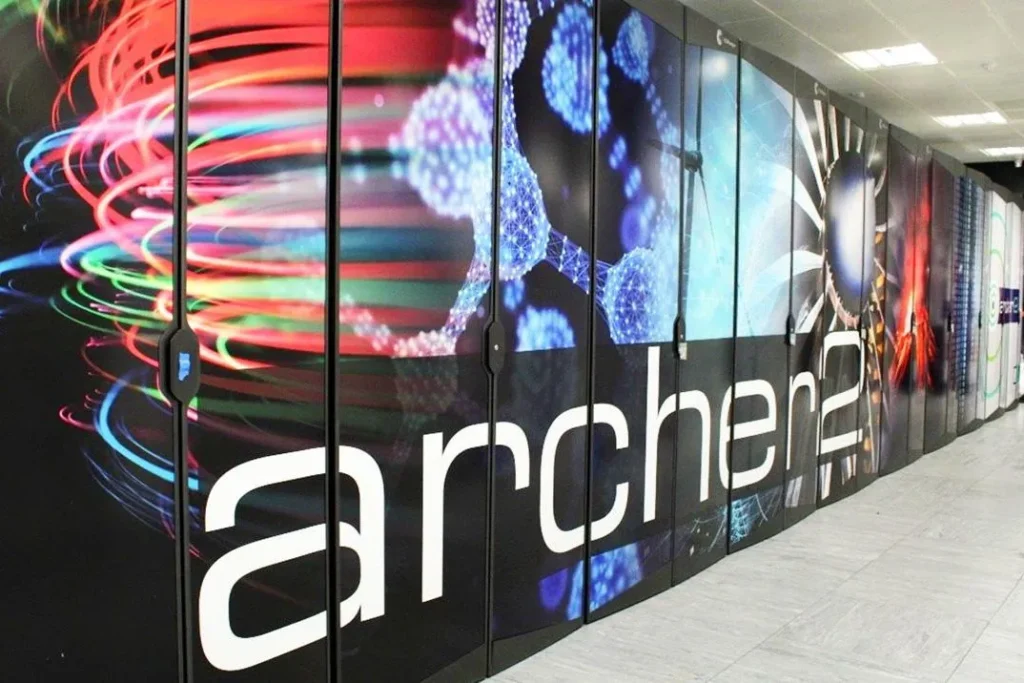Introduction Of UK
The United Kingdom, once a prominent player in global supercomputing, has fallen out of the Top500 rankings of the world’s most powerful non-distributed computer systems. The latest rankings reveal that the UK’s national supercomputer, Archer2, has dropped to 62nd place, down from 49th in June and 38th in November 2022. This decline highlights an urgent need for strategic investments in high-performance computing (HPC) infrastructure. UK

Table of Contents
Archer2’s Aging Infrastructure
Archer2, housed at the University of Edinburgh, has been a cornerstone of British supercomputing since its launch in 2021. Designed to serve the research community with high-speed simulations and data processing, it is nearing the end of its operational life, slated for decommissioning in 2026. Its fall in rankings underscores its outdated specifications in the rapidly evolving world of HPC. Countries like the United States, China, and Japan have surged ahead with significant investments in next-generation exascale supercomputers—machines capable of performing more than one quintillion calculations per second. UK
The Impact of Investment Cuts
The U.K.’s downward trajectory coincides with the shelving of plans for an £800 million exascale supercomputer by the new Labour government. The proposed system, intended for the University of Edinburgh, would have marked the country’s entry into the elite exascale computing league. This decision has drawn criticism from scientists and technologists who warn of far-reaching consequences for the country’s research and innovation capabilities. UK
Professor Mark Parsons, director of the Edinburgh Parallel Computing Centre (EPCC), described the lack of investment as a potential “disaster.” Speaking to the Financial Times, Parsons stated:
“We can’t be a country the scale of Britain without a supercomputer. It would block the advancement of U.K. science and innovation.” UK
Global Consequences for U.K. Research
Supercomputers play a pivotal role in advancing scientific discovery, from modeling climate change to developing new medicines and AI algorithms. Falling behind in HPC rankings risks eroding the U.K.’s competitiveness in these fields. It could also hinder the nation’s ability to attract top-tier researchers and collaborations on international projects requiring cutting-edge computational resources.
In contrast, global peers continue to push the boundaries of HPC. The United States leads the rankings with systems like Frontier, the world’s first operational exascale machine, while China and Europe are also ramping up investments. Without a competitive system, the U.K. may find itself unable to keep pace with these technological powerhouses. UK
The Path Forward
Reclaiming a position in the top tier of supercomputing requires swift and sustained investment. Building an exascale system is not merely about ranking prestige but about equipping the U.K. with the tools necessary to address global challenges and drive innovation. A renewed commitment to HPC infrastructure could catalyze breakthroughs across multiple disciplines and reaffirm the U.K.’s status as a leader in science and technology. UK
Conclusion
The U.K.’s absence from the global top 50 supercomputers is a stark reminder of the importance of sustained investment in critical infrastructure. With Archer2 nearing the end of its useful life, the need for a new supercomputing system is more pressing than ever. The decision to reverse course on exascale computing could shape the future of British science, innovation, and competitiveness on the world stage.




